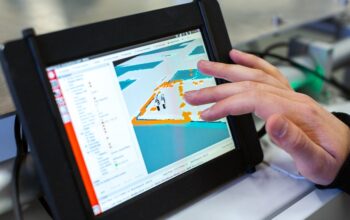Introduction
In the fast-paced and dynamic world of hospitality, the efficiency of hotel operations can make or break the guest experience. A well-functioning Hotel Management System (HMS) plays a pivotal role in ensuring seamless operations, enhanced guest satisfaction, and overall success in the competitive hotel industry. This explores the various facets of a Hotel Management System, its components, and how it transforms the hospitality landscape.
Understanding Hotel Management System
Definition and Scope
At its core, a Hotels Management System is a comprehensive software solution designed to streamline and automate various tasks within a hotel. It encompasses a wide range of functionalities, including reservation management, room allocation, billing, inventory management, and guest services. The goal is to enhance operational efficiency, improve guest satisfaction, and drive overall profitability.
Key Components
- Reservation System: Central to any HMS is its reservation module, which allows guests to book rooms online or through other channels. This system ensures accurate room availability, reducing the risk of overbooking and improving the overall booking process.
- Front Desk Operations: The front desk module manages check-ins, check-outs, and guest information. It provides real-time data on room availability, facilitates a smooth check-in process, and allows staff to address guest requests promptly.
- Billing and Invoicing: A robust billing system within the HMS automates invoicing processes, tracks expenses, and generates accurate bills for guests. This not only reduces errors but also speeds up the checkout process.
- Advantages of Implementing a Hotel Management System
- Operational Efficiency
- Time Savings: Automation of routine tasks, such as check-ins, check-outs, and billing, saves staff time and allows them to focus on providing better service to guests.
- Real-time Information: The system provides up-to-the-minute data on room availability, guest preferences, and inventory status, enabling quicker decision-making.
- Enhanced Guest Experience
- Personalized Services: A well-integrated HMS allows hotels to capture guest preferences and deliver personalized services, from room amenities to special requests.
- Efficient Communication: The system facilitates communication between different hotel departments, ensuring that guest requests and preferences are communicated seamlessly.
- Revenue Optimization
- Dynamic Pricing: Many HMSs include revenue management features that allow hotels to adjust room prices based on demand, maximizing revenue during peak periods.
- Cross-selling Opportunities: Integrated systems provide opportunities for upselling additional services or amenities, contributing to increased revenue per guest.
Trends Shaping the Future of Hotel Management Systems
Cloud-Based Solutions
- Cloud-based: HMS is gaining popularity due to its flexibility, scalability, and accessibility. They allow hotel staff to access data from anywhere, facilitating remote management and enhancing collaboration.
- Data Security: With the increasing reliance on cloud solutions, data security has become a top priority. Modern HMS incorporate robust security measures to protect sensitive guest information and ensure compliance with data protection regulations.
- Mobile Integration
- Mobile apps are becoming integral to the guest experience. Hotels are incorporating mobile check-in/out, keyless entry, and in-app communication to cater to the preferences of tech-savvy guests.
- Post-pandemic, there is a growing emphasis on contactless technology in the hospitality industry. Mobile check-in, digital room keys, and mobile payments are becoming standard features in advanced HMS.
- Artificial Intelligence (AI) and Analytics
- AI is being leveraged for predictive analytics, allowing hotels to anticipate guest preferences and tailor services accordingly.
- AI-driven chatbots enhance guest communication, providing instant responses to queries and requests. Virtual assistants in rooms can offer information and services, further elevating the guest experience.
- Challenges in Implementing Hotel Management Systems
- Integration Complexity
- Integrating an HMS with existing systems can be challenging, requiring careful planning and execution to ensure a seamless transition.
- Staff members need to be trained on new systems, and there can be resistance to change. A smooth transition requires effective training programs and ongoing support
- Cost Considerations
- Implementing a comprehensive HMS involves initial costs for software, hardware, and training. However, the long-term benefits often outweigh the upfront investment.
- Ongoing maintenance and updates are essential to keep the system running smoothly. Hotels need to factor in these costs when budgeting for an HMS.
- Sustainability and Green Initiatives in Hotel Management Systems
- Environmental Impact
- As the global focus on sustainability grows, hotels are incorporating eco-friendly practices into their operations. Some HMSs now include features that enable hotels to monitor and reduce energy consumption, contributing to their environmental responsibility.
- The move toward a paperless environment is not only cost-effective but also aligns with sustainability goals. Electronic invoicing, digital guest communications, and e-check-in options within an HMS significantly reduce the need for paper usage.
- Guest Education
Some HMS platforms include features that allow hotels to educate guests on sustainable practices during their stay. This could include tips on water conservation, energy-saving measures, and waste reduction, fostering a sense of responsibility among guests.
The Role of Feedback and Reviews
- Guest Feedback Integration
- Modern HMS often integrates with guest feedback and review platforms. This real-time integration allows hotels to address concerns promptly, enhancing the overall guest experience.
- By analyzing guest feedback data, hotels can identify patterns and areas for improvement. This data-driven approach is instrumental in refining services and ensuring continuous enhancement of the guest experience.
- Online Reputation Management
A positive online reputation is crucial for a hotel’s success. An effective HMS contributes to online reputation management by encouraging positive reviews through excellent service delivery and prompt issue resolution.
Evolving Regulatory Compliance
Data Protection Regulations
- With the increasing focus on data privacy, HMS must comply with stringent regulations to protect guest information. This includes adherence to laws such as the General Data Protection Regulation (GDPR) and other local data protection laws.
- As cyber threats become more sophisticated, HMS providers are implementing robust cybersecurity measures to safeguard sensitive data and maintain the trust of both guests and hotel stakeholders.
- Health and Safety Compliance
The COVID-19 pandemic has heightened the importance of health and safety in the hospitality industry. HMS platforms are adapting to include features that assist hotels in adhering to health guidelines, such as contactless check-in and sanitation tracking.
Conclusion
A Hotel Management System is a game-changer in the hospitality industry, reshaping the way hotels operate and deliver services. As technology continues to advance, the integration of cloud-based solutions, mobile apps, and artificial intelligence will further redefine the guest experience. While challenges exist, the benefits of improved efficiency, enhanced guest satisfaction, and increased revenue make the adoption of an effective HMS a strategic move for hotels aiming to stay competitive in the ever-evolving landscape of hospitality.




